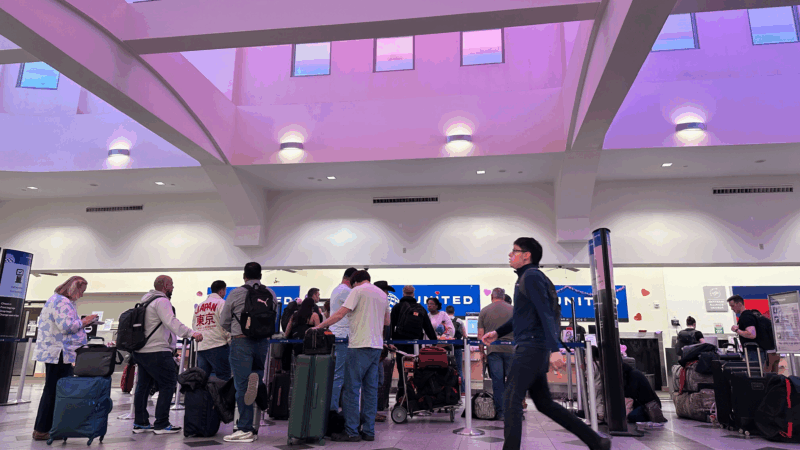Live Annotation of President-Elect Trump’s Press Conference
The NPR Politics team, editors, and reporters across the newsroom will be live-annotating a news conference with President-elect Donald Trump, expected at 10 a.m. CT on Wednesday.
They will be fact-checking and providing background to his remarks in real-time. We will be paying special attention to any comments about conflicts of interest, health care and national security.
Portions of the transcript with added analysis will be underlined in yellow, followed by context and fact checks below.
*Note: This page will update automatically as the event proceeds. We will work to correct the transcript as it comes in, but due to the live nature of the event, there may be some discrepancies.
Loading…
U.S. ice dancers Madison Chock and Evan Bates win Olympic silver, in a stunning upset
Chock and Bates, four-time Olympians, were heavily favored for gold. But they lost by less than two points to a French duo who has been clouded by controversy involving their former partners.
AI brings Supreme Court decisions to life
Like it or not, the justices are about to see AI versions of themselves, speaking words that they spoke in court but that were not heard contemporaneously by anyone except those in the courtroom.
These monks’ walk for peace captivated Americans. It ends this week
A group of Buddhist monks walked from Fort Worth, Texas, to Washington, D.C., in the name of peace. The 108-day pilgrimage captivated Americans.
The airspace around El Paso is open again. Why it closed is in dispute
The Federal Aviation Administration abruptly closed the airspace around El Paso, only to reopen it hours later. The bizarre episode pointed to a lack of coordination between the FAA and the Pentagon.
‘Dawson’s Creek’ star James Van Der Beek has died at 48
Van Der Beek played Dawson Leery on the hit show Dawson's Creek. He announced his colon cancer diagnosis in 2024.
A Jan. 6 rioter pardoned by Trump was convicted of sexually abusing children
A handyman from Florida who received a pardon from President Trump for storming the U.S. Capitol on Jan. 6, 2021, was convicted on state charges of child sex abuse and exposing himself to a child.





